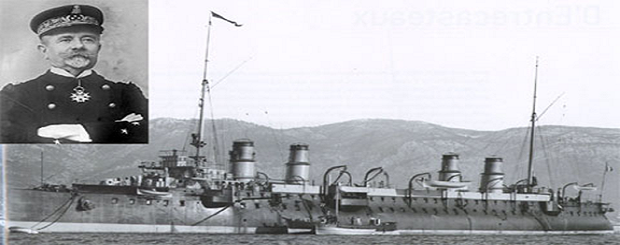
08 decembre 2015
As part of the events commemorating the centennial of the Armenian Genocide of 1915, the Montreal Holocaust Memorial Centre (MHMC) presents the exhibit titled The 40 Days of Musa Dagh: Testament of Resistance at the Heart of the Armenian Genocide on display from December 10th, 2015, to February 11th, 2016. The exhibition is the result of a partnership with the Canadian Centennial Committee of the Armenian Genocide and the Government of Canada – Citizenship and Immigration Canada.
To mark the International Day for the Prevention of Genocide, the exhibition at 6:30pm will be followed at 7:45pm by a lecture by Dr. Yair Auron, Professor and Head of the Department of Sociology, Political Science and Communication of the Open University of Israel, entitled: “The Impact of Werfel’s work, The 40 Days of Musa Dagh, on the Jewish resistance during the Second World War”.
This exhibition invites visitors to immerse themselves in Franz Werfel’s historical novel, The 40 days of Musa Dagh. With the backdrop of the Armenian genocide of 1915, the book recounts the acts of resistance of a group of more than 4,000 Armenians against the Ottoman army. Refugees in Musa Dagh (Mount Moses) bravely faced the enemy before being evacuated by the French Navy ships led by Admiral Dartige Du Fournet. The exhibition explores the faith of Armenian resistance fighters and their descendants. Four stations guide the visitors from the fragments of history to the writing of the novel and from the epic saga and its symbols to its legacy today. The exhibition is also, beyond the discovery of the novel and the events, a message of hope and courage to all nations who are now oppressed.
“Franz Werfel is one of the first authors to denounce the Armenian Genocide.” said Marie-Blanche Fourcade, associate professor in the art history department at UQAM and Professional Museum Project Manager. The 40 Days of Musa Dagh today remains one of the iconic stories of the Armenian Genocide. Written in the 1930s, during the rise of Nazism to power, Werfel’s novel “seems to prefigure the future,” as told by Elie Wiesel in the preface of the French edition of the book. He was also banned by Hitler and destroyed in several burnings. Still, it was read in hiding.
Punctuated with archive footage and contemporary documents, the exhibition offers the opportunity to see the first edition of the novel and unpublished documents on loan from the Resistance descendants of Musa Dagh. A short documentary, made as part of the exhibition, ends the visit, leaving the floor to the families of resistance fighters and a Holocaust survivor, Ted Bolgar, who testifies on his reading of the novel.
www.horizonweekly.ca
